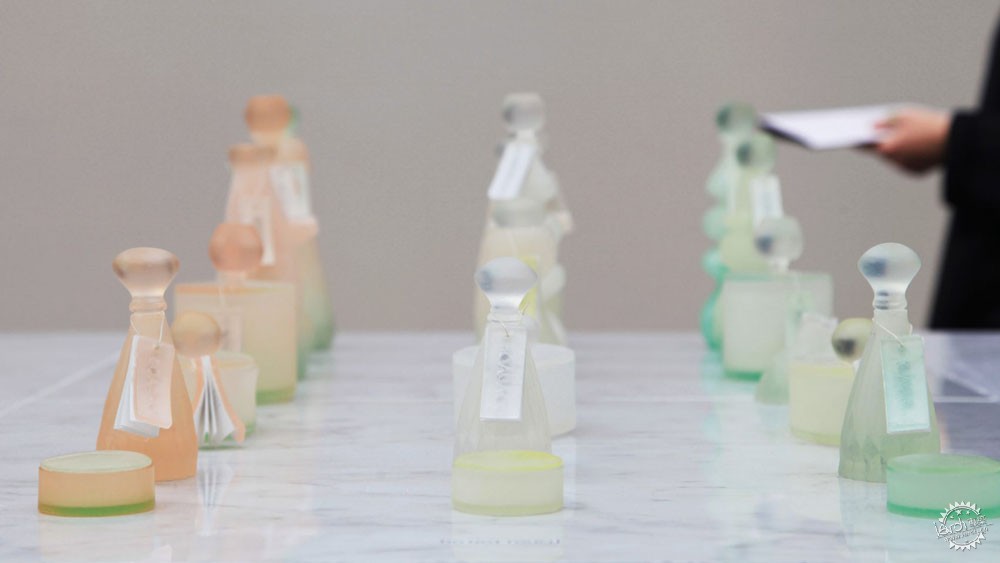
Soapack bottles can be used as soap once their contents are finished
由专筑网小R,吴静雅编译
伦敦中央圣马丁学院研究生Mi Zhou设计了名为“Soapack”的洗漱瓶,这种瓶子由肥皂浇铸而成,不再使用之后它自身便会融化。
在Soapack的制作过程中,设计师应用了植物油基肥皂,并且应用矿物、植物、花朵染色而成,然后放入模具中,这样的做法类似陶瓷制品的滑动铸造。
瓶子上覆盖着一层防水蜂蜡,这样能够防止瓶子提前融化。
Central Saint Martins post-graduate student Mi Zhou has created toiletry bottles called Soapack that are cast from soap and melt away once they are no longer useful.
To make each Soapack, vegetable oil-based soap is dyed using pigments from minerals, plants and flowers and formed in a mould, in a process similar to slip-casting ceramics.
A thin layer of beeswax is used to line the bottles to make them waterproof, and prevent the liquid contents from dissolving the bottles before they are used up.
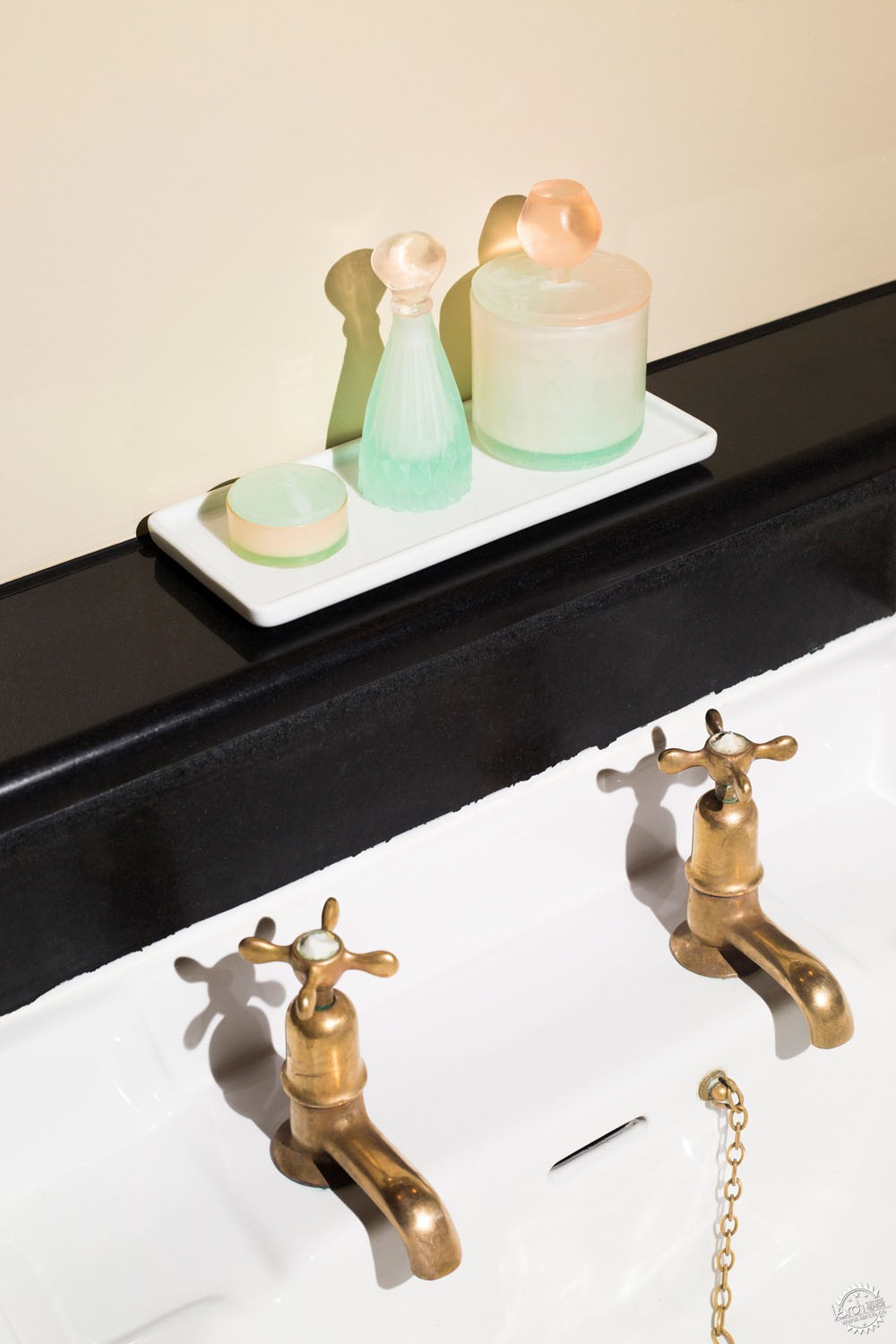
使用者可以把瓶子干燥保存,或是将其放在肥皂盘上,使用时再将其融化即可。
Zhou说:“这让使用者能够一直使用它们到完全溶解。”
Users can keep Soapack bottles in a dry place to preserve them, or rest them on a soap dish and allow them to melt away on contact with water and with use.
"It is designed to invite the user to use it or even deconstruct it and make it eventually disappear," Zhou told Dezeen.
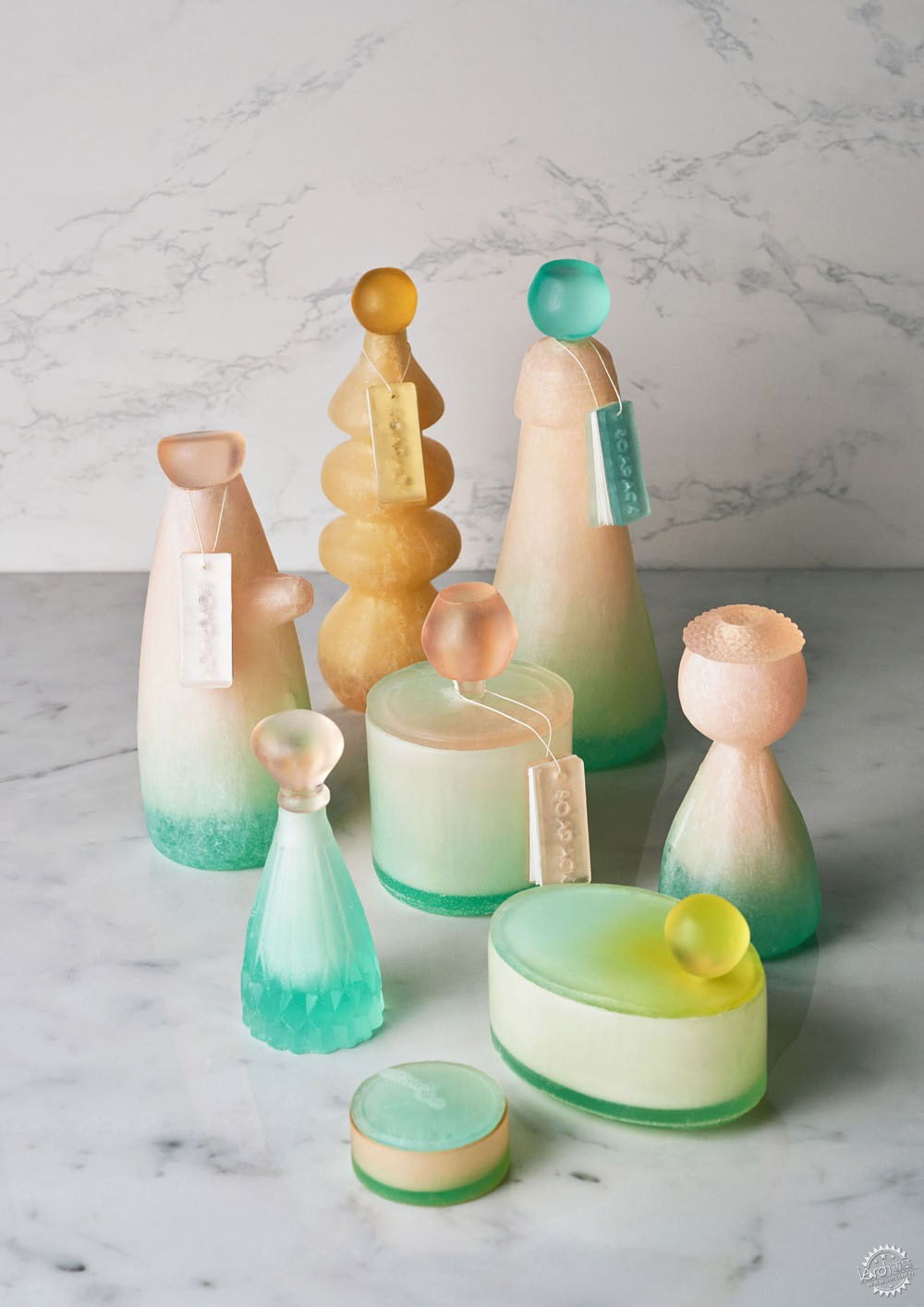
这个项目表达了对于常规塑料洗漱包装的不可回收的解决策略。
Zhou说:“产品包装在用过之后就扔了,无论设计多么精致,最终也是徒劳。我希望能够重新评估一下包装是否也能减少塑料痕迹。”
标准的塑料瓶大约要450年才能分解,不可回收的塑料最终往往会对海洋造成污染。
The project is a response to the disposable nature of regular plastic packaging for toiletries.
"Product packaging has always been thrown away, no matter how well-designed or what material it is made of," said Zhou. "I want to re-evaluate what packaging could be as well as help us to reduce our plastic footprint."
A standard plastic bottle can take up to 450 years to break down, and non-recycled plastic often ends up polluting the ocean.
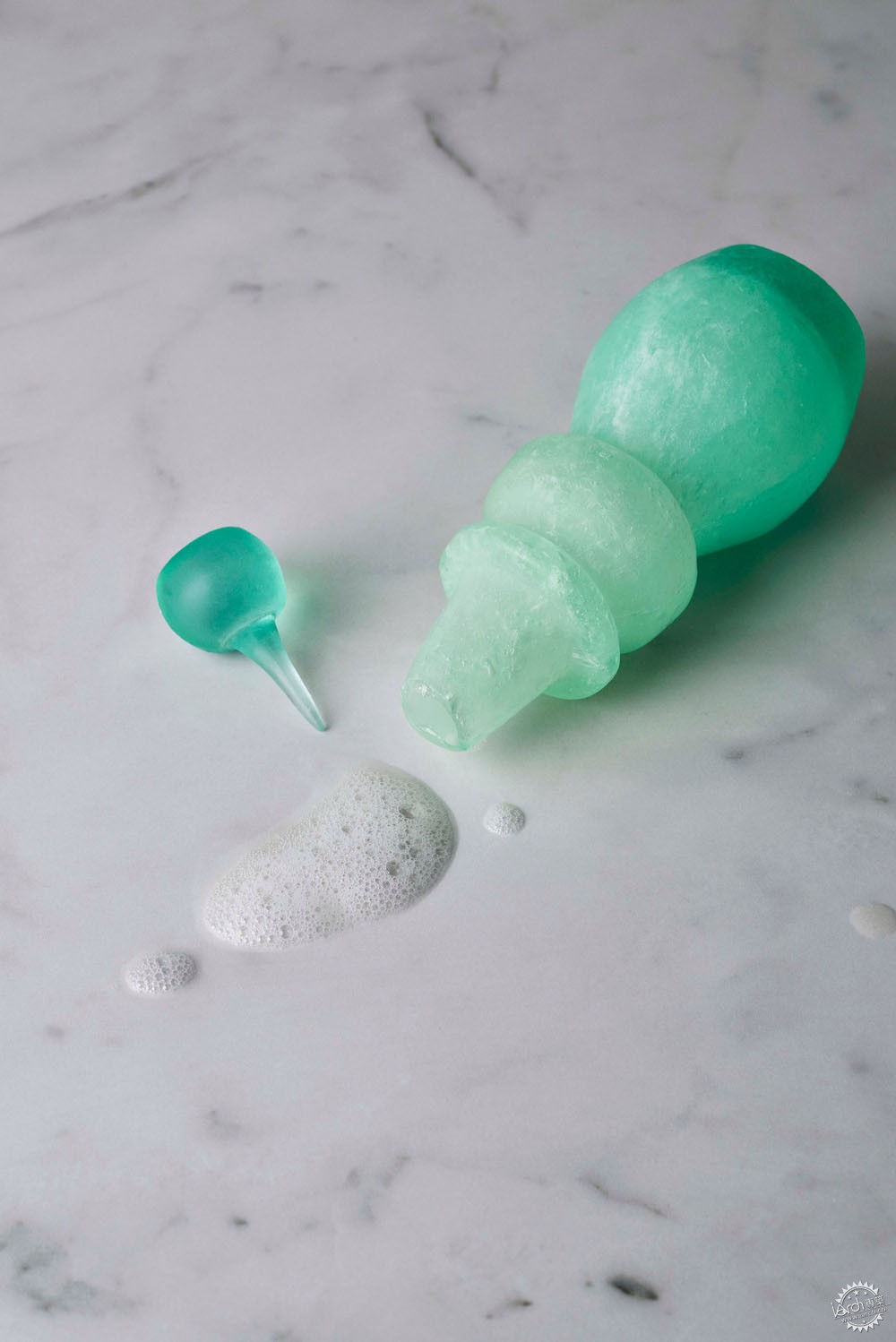
Zhou曾经看过可食用包装,那么他将同样的思路应用在肥皂之中。
“作为一名设计师,我想重新思考一下当前的产品与消费模式,同时质疑一次性包装材料的不合理性。”
设计师参考了香水瓶子,而构思了精致的Soapack肥皂瓶,这种包装并不会让人联想起一次性产品。
Zhou说:“我发现,相比起肥皂瓶,人们会愿意收集香水瓶,因为它们看起来更好看一些。”
“每次香水用完之后,我们都会把瓶子保留下来,因为它太好看了。”
Having seen edible packaging made for food, Zhou applied the same logic to shampoo and other personal care products.
"As a designer, I want to rethink the current mode of producing and consuming of these products and also critique disposable package materials."
With their delicate stoppers Soapack containers reference perfume bottles, a type of non-plastic packaging that people are less likely to treat as disposable.
"I found that compared to shampoo bottles, we are more likely to keep perfume bottles which mostly are made of glass and look gorgeous," said Zhou.
"Even if the perfume is used up, we keep the bottles since they are too beautiful to be discarded."

让Soapack变得好看、实用、可持续,是这个项目的重要目标。
Zhou说:“我们生活在过渡时期,我们没有其他替代产品,但是可以选择做到可持续发展。”
“我们需要鼓励人们尊重环境,但是也不能影响使用体验。”
Making Soapack beautiful, as well as useful and sustainable, was a vital part of the project.
"We are living in a period of transition where we are encouraged to act 'sustainably', in situations where there are few successful options provided," said Zhou.
"We do need to encourage people to use alternatives to respect our environment better but not compromising in user experience."
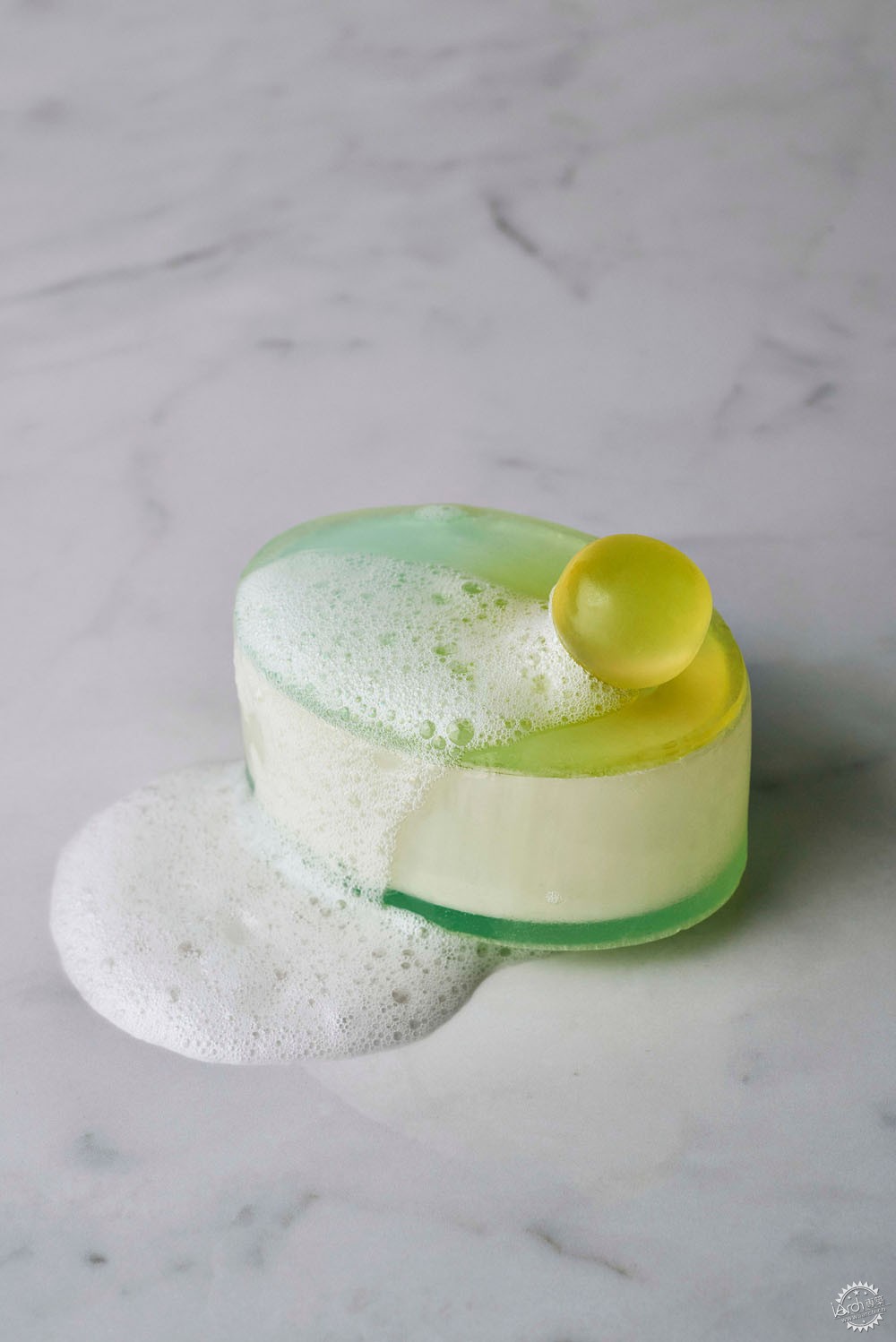
如果瓶子一直干燥,那么它就能像装饰品一样一直保存下去,但是其设计初衷是让它融化。
Zhou说:“其实没有所谓的规则,人们可以按照自己的喜好来实用。”
传统塑料由化石燃料制造而成,对环境会造成污染与影响,因此设计师们开始进行可持续设计构思,其中包括来源于细菌的包装、来源于肉类的生物塑料包装,以及来源于藻类的包装。
摄影:Tom Mannion、Xinjia Zhou
If the user keeps them dry then Soapack can be kept as a permanent ornament, although it is designed to ultimately melt away to nothing.
"There are no rules, people can use and place it as their preference," said Zhou.
Traditional plastic requires fossil fuels to make and often ends up polluting the environment, so designers are increasingly coming up with more sustainable solutions, including packaging made from bacteria, bioplastic wrappers made from meat, and bags made from algae.
Photography is by Tom Mannion and Xinjia Zhou.
|
|
专于设计,筑就未来
无论您身在何方;无论您作品规模大小;无论您是否已在设计等相关领域小有名气;无论您是否已成功求学、步入职业设计师队伍;只要你有想法、有创意、有能力,专筑网都愿为您提供一个展示自己的舞台
投稿邮箱:submit@iarch.cn 如何向专筑投稿?
